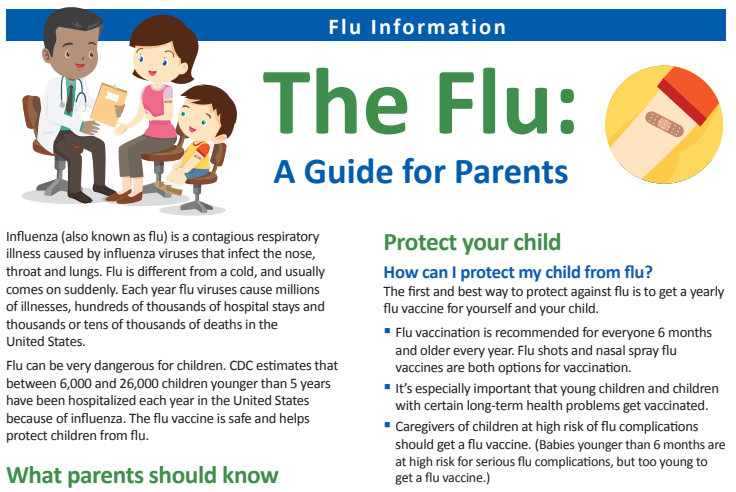 Learn more about the flu and how flu shots can protect you and your family from Dr. Kerri LeBlanc, Co-Director of Bassett Healthcare Network's School-Based Health Centers:
Learn more about the flu and how flu shots can protect you and your family from Dr. Kerri LeBlanc, Co-Director of Bassett Healthcare Network's School-Based Health Centers:
Influenza is not just a common cold; it's an acute upper and lower respiratory tract infection that is characterized by severe cough and congestion, sore throat, fevers, headaches, muscles aches, and can have associated gastrointestinal symptoms. The normal time course is 1 week, though persistent cough and fatigue after the acute illness has resolved is common.
Patients with high-risk conditions (such as asthma, cardiac disease or immune deficiencies) or age under 6 months are at the highest risk to have life-threatening complications from influenza. In the 2016-2017 flu season, there were 8 reported deaths of children age 18 and under in NYS alone, and many more nation-wide. Although the risk of death is increased among children with high-risk medical conditions, approximately 40% of pediatric influenza deaths occur among children without high-risk conditions.
So this is a severe illness that at best will make you very ill for at least a week, and at worst can kill you — so why do so many people defer getting a flu shot every year? Several myths about flu shots exist, but these are the ones we hear most commonly:
"I've never had a flu shot and I've never gotten the flu, so I must not need it."
Just because you have been lucky in the past, doesn't mean you will be again this year. Millions of people have never gotten into car accidents, but they still wear seat belts and carry insurance it's the same with protecting yourself from the flu.
"I got the flu from the shot one year, so I don't get it anymore."
The flu shot is made from inactivated viruses or pieces/proteins from the virus it is physically incapable of giving you the flu. It does, however, cause increased activity of your immune system while you respond to the vaccine and produce the antibodies that will protect you, and during this time you will likely feel some mild flu-like symptoms (not at all as severe as getting the real flu itself). Another risk factor in getting the flu shot is being in your doctor's office waiting room it's entirely possible to pick up another viral illness in such a high risk place, and many times it's a completely unrelated infection that people get right after being seen for their flu shot.
"Flu shots don't work."
We don't really know during any given flu season how effective the vaccine is that year, as this data won't become available until the season is complete. However, even if the protection is as low as 30%, that is still better than 0%; studies have shown that even an incompletely protective flu vaccine will decrease the severity of illness if you do get the flu; and almost all influenza-related deaths occur in un-immunized patients.
Interested in learning more about the flu?
Click on the below image to read our flu guide for parents, which discusses important information parents should know about the flu, how parents can protect their child from the flu, and what to do if your child is sick:

